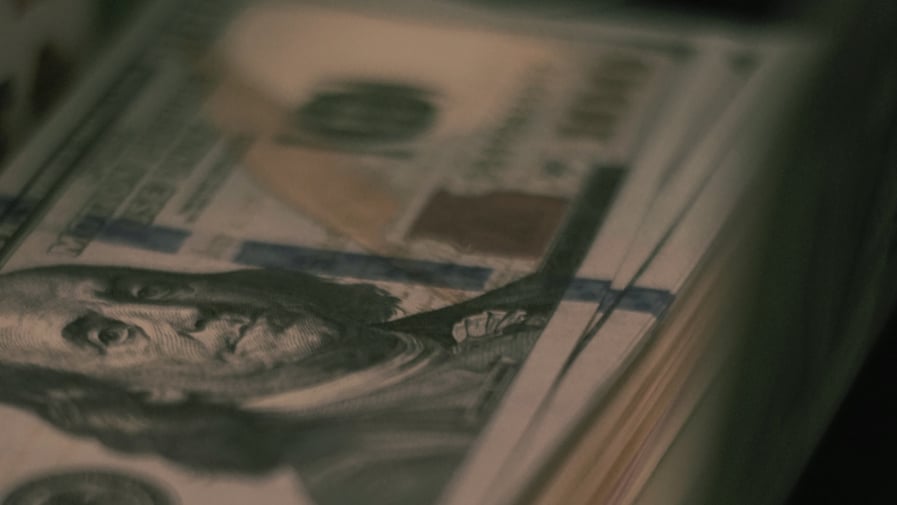Key news in this bulletin:
- A Russian investment bank is linked to USD 5 billion in laundered funds
- The US escalates sanctions on Venezuelan state-owned companies
- Hong Kong levies its highest ever fines on four global banks for IPO-related failures
- Microsoft publishes a report outlining Iranian cyber attacks against Middle Eastern businesses
MIDDLE EAST & NORTH AFRICA
Iran: The continuing rise of state-sponsored hacking
In March 2019, researchers at Microsoft published a report stating that, in the past two years, Iranian state-sponsored hackers had caused damage worth hundreds of millions of dollars, targeting thousands of individuals and more than 200 companies worldwide. The hacking group, reportedly named Holmium, principally targeted Middle Eastern companies, but also those in the US and Europe. Holmium primarily deployed phishing emails, which, when opened, downloaded malicious software to wipe or steal data from corporate systems. Holmium also used DNS hijacking, a form of cyber attack that manipulates DNS queries to enable the hacker to harvest user credentials on a large scale. In recent years, concern regarding Iranian hacking has considerably increased; in 2018, nine Iranians were charged in the US for launching cyber attacks on US universities, companies and government agencies.
Israel: Bank fined USD 195 million for tax evasion
On 12 March 2019, Mizrahi Tefahot Bank, one of Israel’s largest banks, agreed to pay a fine of USD 195 million to the US Department of Justice for enabling US nationals to evade taxes, following a five-year investigation. From 2002 to 2012, the bank opened and managed offshore accounts on behalf of a number of clients, including those under false names and using foreign companies. The fine is part of several recent US investigations into the illicit activities of several prominent Israeli banks. In 2014, Bank Leumi paid a fine of USD 400 million for tax evasion, while a tax probe into Bank Hapoalim remains ongoing.
ASIA PACIFIC
Hong Kong: Securities regulator issues largest ever fines for IPO failures
On 14 March the Hong Kong Securities and Futures Commission (SFC) fined four global banks a total of USD 100 million for failing in their due diligence duties as IPO sponsors in two separate cases.
In the first case, two of the banks had acted as joint sponsors for the listing of China Forestry Holdings, a Chinese logging company, in 2009. Two years later, China Forestry was investigated for allegedly overstating its revenue and the size of its plantation assets in its IPO prospectus. The two banks failed to verify China Forestry’s reported assets, logging rights, and customer base through site visits, document verification, and proper interviews. The second case centred on Tianhe Chemicals Group, another Chinese company accused of exaggerating its revenue and profits shortly after its IPO in 2014. The SFC said that the three sponsors had again not held proper interviews with Tianhe’s clients to corroborate its level of business and failed to verify interviewees’ identities or access to information.
RUSSIA & CIS
Russia: Investment bank linked to alleged offshore money laundering network
In early March, the OCCRP, an international consortium of journalists, published an investigation into a complex network of over 75 shell companies which channelled almost USD 5 billion out of Russia through fraudulent transactions between 2006 and 2013. The network, nicknamed the ‘Troika Laundromat’, was curated by Troika Dialog, a prominent Russian investment bank now owned by the Russian state. Funds reportedly included the legitimately and illegitimately acquired wealth of various Russian businesspeople and politicians and entered Europe via a now-defunct Lithuanian bank with a poor regulatory record. According to the OCCRP’s investigation, some of the transactions within the network involved entities connected to well-known criminal cases in the region, including fraudulent tax refunds uncovered by Sergei Magnitsky, a Russian accountant who later died in prison, and a fuel supply fraud scheme at Moscow’s Sheremetyevo airport. Troika Dialog’s former owner has denied any wrongdoing.
Uzbekistan: Russia’s largest mobile network provider pays USD 850 million to us authorities to settle bribery charges
On 7 March, MTS, whose shares are listed on the New York Stock Exchange, announced that it had reached an agreement with US authorities to pay USD 850 million to settle charges of bribery and corruption relating to its activities in the telecoms sector in Uzbekistan between 2004 and 2012. According to the US Securities and Exchange Commission, MTS was one of a number of telecoms companies embroiled in a decade-long scheme in which Gulnara Karimova, the daughter of Uzbekistan’s then president, solicited USD 865 million in bribes in return for access to the local telecoms market. Karimova, who has reportedly been detained by the authorities in Uzbekistan since 2014, has now been indicted under the US Foreign Corrupt Practices Act.
LATIN AMERICA
Venezuela: US ramps up sanctions against state-owned companies
In March, the US government announced new sanctions against six Venezuelan state-owned entities, including CVG Compañia General de Mineria de Venezuela CA, Venezuela’s state-owned mining company, its president Adrian Antonio Perdomo Mata, and Banco de Desarrollo Económico y Social de Venezuela, the country’s state-owned development bank. The new measures are a response to the arrest of the chief of staff of Juan Guaidó, whom the US recognises as the country’s interim President. Since January 2019, the US has imposed increasing sanctions against the Venezuelan government, including against Petróleos de Venezuela SA (PDVSA), the state-owned oil firm, in response to ongoing tensions between the countries and the growing humanitarian, political and economic crises engulfing Venezuela.
Brazil: Former president detained on corruption and money laundering charges
On 21 March, Michel Temer, President of Brazil from 2016 to 2018, was detained on corruption and money laundering charges. His arrest is the latest development in Operação Lava Jato, a wide-ranging anticorruption probe which has already led to the imprisonment of another former president, Luiz Inácio Lula da Silva, on similar charges.
Federal prosecutors claim Temer led an organised crime racket which received up to BRL 1.8 billion (USD 460 million) in bribes and kickbacks, including from three companies which were awarded a contract to build a nuclear power plant in the state of Rio de Janeiro. Temer is subject to at least 10 other corruption investigations. Several Brazilian politicians and news outlets have condemned the arrest, citing a lack of judicial grounds, and suggesting that it was politically motivated.
SUB-SAHARAN AFRICA
South Africa: Officials at state asset manager debarred for accepting bribes
In March, two former senior officials of the Public Investment Corporation (PIC), a South African state-owned investment and asset manager company, were debarred from the country’s financial services sector after it was found that they had accepted bribes in relation to the embezzlement of funds from VBS Mutual Bank (VBS), a South African bank. Both the officials were alleged to have accepted bribes in exchange for not alerting authorities to the embezzlement of approximately ZAR 2 billion (USD 138 million) of depositors’ funds by senior employees of the bank, which collapsed at the end of 2018. These findings were made as part of an ongoing official commission of inquiry into alleged corruption at the PIC between 2015 and 2018. The commission is expected to conclude in April of this year.
Kenya: Corruption investigation into dam projects in Rift Valley
Since February 2019, Kenya’s Directorate of Criminal Investigations (DCI) has been probing alleged bribery associated with the tendering of three dam projects in Kenya’s Rift Valley. Specifically, two Kenyan cabinet secretaries are reportedly facing arrest for misappropriating public funds intended for the construction of two of the dam projects. Several other cabinet secretaries have been accused of receiving bribes in order to award the projects to an Italian construction company, which was unable to complete the work due to financial difficulties. In March, Kenya’s current finance minister and several directors of companies involved in the projects were summoned for questioning by the DCI. It is expected the that DCI will prosecute on the basis of this investigation.
DRC: Electoral officials sanctioned for embezzling funds and delaying election
In March, the US Department of Treasury issued financial sanctions against three senior officials of the Democratic Republic of Congo’s (DRC) Independent National Electoral Commission (CENI). This comes a month after a visa ban was announced against the same officials and other high-profile members of former President Joseph Kabila’s government (2001 through January 2019). The US alleges that the three CENI officials embezzled funds in connection with an electronic voting machine contract, intentionally delayed election preparations, and bribed constitutional court judges to uphold a decision to delay the vote by seven days. It was widely alleged that the election in January 2019 of Félix Tshisekedi, who is believed to have made a power-sharing agreement with Kabila, was fraudulent; however, the decision has since been upheld by DRC courts.





